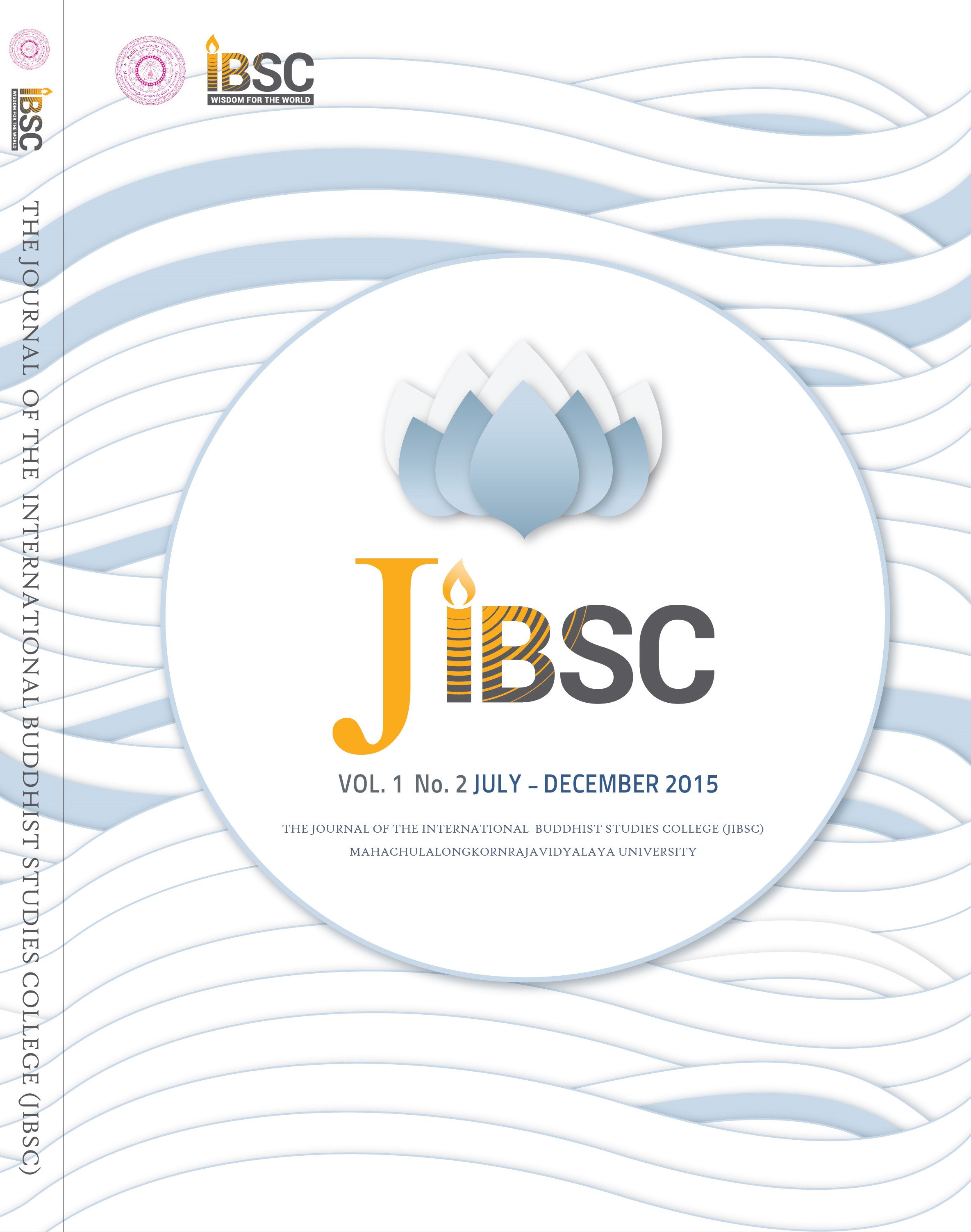MIND: A SOCIOLOGICAL VERSUS A BUDDHIST PERSPECTIVE
Main Article Content
Abstract
In the course of time a topic broadly studied and discussed is “mind.” In this article two perspectives in relation to mind are explored; Peirce’s semiotic analysis applied in sociology and the higher doctrine (Pāli: Abhidhamma) in Theravāda Buddhism. Based on Peirce’s semiosis, some sociologists like Eugene Halton remark that mind is made out of meanings derived through sign-activities. It is that which matters meanings into being, thus intrinsically social. Viewing mind in general as sign-process or in particular as an indexical sign and a symbolic sign may be acceptable by Buddhists. But insisting that mind is intrinsically social is defi nitely controversial. According to the higher doctrine, each mind is like a pointinstant at which three components are interlocking in contact and various mental activities are articulated as a fl ow of consciousness. In the conventional sense mind points to sign-process, but in the ontological (or the ultimate) sense it is a basis upon which mind-process makes possible sign-process. Supported by the teaching of Kamma in which choice and self-responsibility are of great signifi cance, mind will be the topic pertaining to individual deliberation rather than social determination.
Article Details
The Journal of TCI is licensed under a Creative Commons Attribution-NonCommercial-NoDerivatives 4.0 International (CC BY-NC-ND 4.0) licence unless otherwise stated. Please read our Policies page for more information on Open Access, copyright and permissions.


